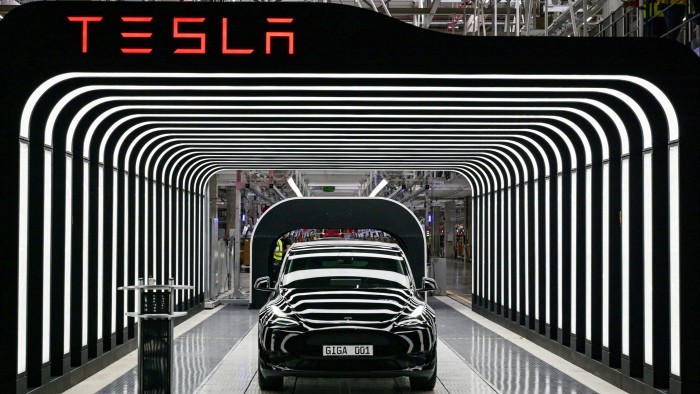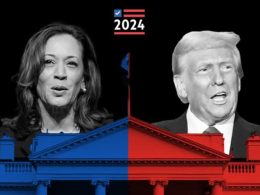Unlock the White House Watch newsletter for free
Your guide to what the 2024 US election means for Washington and the world
Electric car sales have picked back up in recent months with global sales running a third higher in October than the previous year. In many countries much of that growth is still being driven by government subsidies. The US is one of them, although that support may not last much longer.
President-elect Donald Trump is expected to kill the $7,500 consumer tax credit for EV purchases as part of broader tax-reform legislation. Asian and European carmakers have been particular beneficiaries of this lucrative offer. They have most to lose.
The US and China are the world’s two largest national markets for EVs. But the latter is dominated by domestic brands, which account for more than 92 per cent of the total, leaving little room for global automakers. The $95bn US market, by contrast, is an open one.
Since the start of last year, tax credits have been a key driver of US EV sales. Incentives accounted for more than 12 per cent of the average transaction price, compared with the industry-wide average of about 7 per cent, according to Cox Automotive. This helped to push the EV market share of total US car sales up to 9 per cent in the latest quarter, the highest on record.
This push has been backed by billions of dollars of investment via the 2022 Inflation Reduction Act, with energy tax credits estimated to cost more than $1tn over 10 years. Trump, who describes this as a “green scam”, has vowed to repeal it when he starts his second term.
Without these tax credits, demand for EVs will fall 27 per cent, according to research by a group of US economists — Hunt Allcott, Reigner Kane, Max Maydanchik, Joseph Shapiro and Felix Tintelnot. Indeed, the end of EV subsidies in Germany, Sweden and New Zealand has resulted in a sharp slowdown in sales.
Exactly how much of a difference subsidies make when buying an EV is best shown in the drastic shift in global carmaker sales in August 2022. This was the moment at which a long list of EVs made by Asian and European carmakers, including Hyundai, Kia, Toyota, BMW and Volvo, lost eligibility for US tax credits due to regulation changes that required cars to undergo final assembly in North America.
There was a loophole, however. These restrictions did not apply to tax credits for fleet owners, which included the finance units of automakers that lease new cars. That meant as long as customers leased those Asian and European EVs instead of buying them, they could still get the $7,500 savings in the form of lower lease payments.
Immediately after the exclusion went into effect in August 2022, new leases of those imported EVs surged. The lease share of these models rose from about 10 per cent to nearly 70 per cent, according to the research from the economist group, highlighting that demand was very much contingent on continued subsidies.
A full reversal of subsidies may be unlikely due to political opposition and pushback from environmentalists. But closing the leasing loophole and rescinding funds that are currently unspent would be simple enough tasks for Trump. Once those tax credits are gone, carmakers would need to slash EV prices to keep demand up, at the expense of margins.
Not all carmakers will be affected equally. Tesla is already profitable, giving it an edge over its global competitors. But for Asian and European carmakers that have had a slower start to making EVs, a cut in subsidies in a key market could have serious implications.
EV sales growth has already been slowing in developed economies, with nearly 30 per cent of EV owners globally likely to switch back to petrol cars, according to a survey conducted by McKinsey. Toyota is pushing back the start date for EV manufacturing in the US and Volvo has abandoned its target to produce only fully electric cars by 2030. Meanwhile, EV sales at Volkswagen, which plans to shut at least three factories in Germany, continued to fall in the latest quarter.
Government funds have been pivotal in steering consumers towards EVs. With demand from early adopters levelling off and mainstream consumers still wary about the relatively new technology and inadequate charging infrastructure, carmakers depend on subsidies now more than ever. An abrupt change of course led by Trump would threaten the entire industry’s EV transition.
june.yoon@ft.com
Source link









